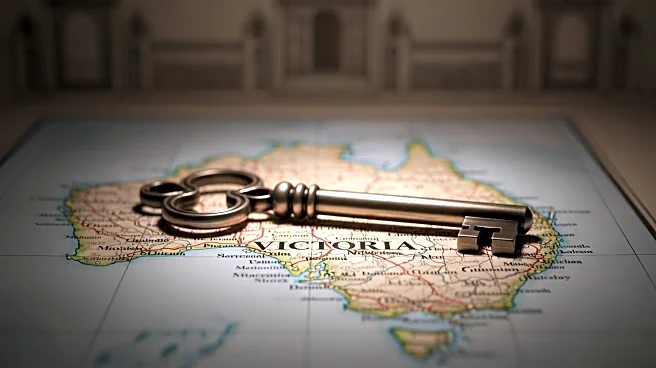What's Happening?
Victorian authorities have lifted travel restrictions in the Porepunkah area following an extensive search operation for fugitive Dezi Freeman. Freeman, who is suspected of killing two police officers during a search warrant execution on August 26, has been the subject of Australia's largest tactical policing operation. The search involved over 125 specialist officers from across Australia and New Zealand, who combed through rugged terrain, including caves, rivers, and gorges, in an effort to locate Freeman. Despite easing travel warnings, the Mount Buffalo National Park remains closed, and the search for Freeman continues. Authorities have received over 1,100 tips and have offered a $1 million reward for information leading to his capture.
Why It's Important?
The search for Dezi Freeman highlights the challenges law enforcement faces in apprehending fugitives in difficult terrains. The operation's scale underscores the seriousness of the alleged crimes and the potential threat Freeman poses to the community. The lifting of travel restrictions is significant for local residents and businesses, as it marks a step towards normalcy after weeks of disruption. However, the continued closure of the national park and ongoing search efforts indicate that the threat has not been fully neutralized. The situation also raises questions about community safety and the resources required for such extensive operations.
What's Next?
Authorities will continue their search efforts in the Porepunkah area, focusing on potential hiding spots such as mineshafts and underground bunkers. The community is advised to remain vigilant and report any suspicious activity. The police are balancing the need to find Freeman with minimizing the impact on local residents. As the search progresses, authorities may adjust their strategies based on new information or tips from the public. The outcome of this operation could influence future law enforcement tactics in similar situations.
Beyond the Headlines
The case of Dezi Freeman may prompt discussions on the adequacy of current law enforcement strategies and resources in handling fugitives in remote areas. It also raises ethical considerations regarding the balance between public safety and community disruption during large-scale police operations. The involvement of officers from multiple regions highlights the importance of inter-agency cooperation in addressing cross-jurisdictional challenges.








